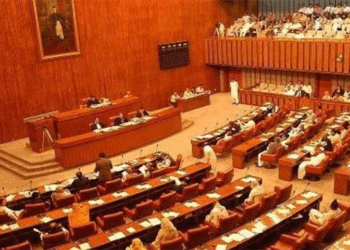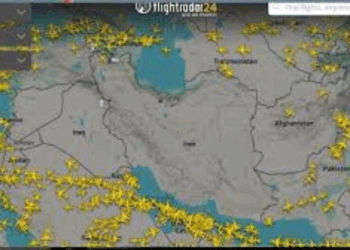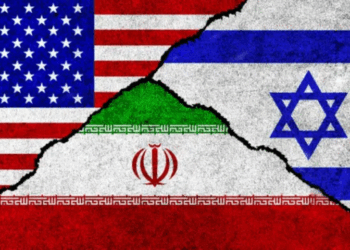By Muhammad Mohsin Iqbal
The targeting and killing of Chinese experts and residents working in Pakistan has raised concerns about both the safety of foreign nationals and the stability of long-term development projects, particularly those under the China-Pakistan Economic Corridor (CPEC). These attacks are not random acts of violence but are part of a broader, calculated strategy aimed at undermining Pakistan’s growth and the strengthening of Pakistan-China relations. Understanding the real reasons behind these targeted killings, identifying the beneficiaries, and addressing the internal and external forces orchestrating these incidents is essential for ensuring the future of joint ventures, including CPEC, and safeguarding Pakistan’s geopolitical and economic interests.
One of the primary reasons for these targeted attacks is to destabilize Pakistan’s economic progress. The China-Pakistan Economic Corridor, a multi-billion-dollar investment project, is the flagship of the Belt and Road Initiative (BRI). It represents a long-term partnership that promises significant economic benefits to Pakistan, including the development of infrastructure, energy projects, and industrial zones. This partnership has the potential to make Pakistan a regional economic hub, which does not sit well with those who want to see the country in a state of perpetual dependency and instability. By targeting Chinese nationals, these actors aim to scare away foreign investment and stall the progress of CPEC, thereby hindering Pakistan’s development.
External forces are believed to play a significant role in these attacks. Some regional and global powers are uncomfortable with China’s expanding influence in South Asia, especially through its deep-rooted partnership with Pakistan. CPEC, given its strategic importance in terms of trade routes and energy supplies, is viewed as a direct threat to the economic and geopolitical ambitions of rival powers. These powers may seek to disrupt this partnership by sponsoring or instigating militant groups to carry out attacks on Chinese personnel in Pakistan. The objective is clear: to create friction between Pakistan and China, drive away Chinese investments, and strain the Pakistan-China relationship. Such efforts, if successful, would benefit these external actors by diminishing China’s influence in the region and weakening Pakistan’s economy.
Internally, there are groups that are either ideologically opposed to Pakistan’s cooperation with China or have vested interests in keeping certain regions of the country unstable. Baloch separatist groups, for instance, have frequently claimed responsibility for attacks on Chinese workers. These groups see CPEC as a threat to their cause, believing that it marginalizes the local population while exploiting the province’s resources. While their grievances may have a local flavor, they have often been accused of receiving support from external powers that are interested in destabilizing the region. Other extremist factions operating within Pakistan may also carry out these attacks to undermine the state, create an environment of insecurity, and gain international attention for their causes.
The beneficiaries of these attacks are not difficult to identify. The development of CPEC is seen as enhancing Pakistan’s economic and strategic capabilities, which challenges India’s influence in the region. Thus, any setbacks to CPEC, such as a reduction in Chinese investment or delays in project completion, would serve India’s strategic interests. Additionally, some Western powers, wary of China’s global rise, may view the disruption of CPEC as part of a broader strategy to contain China’s influence in Asia and beyond.
The impact of these attacks on CPEC and other joint projects is considerable. Every time Chinese nationals are targeted, it sends a message of insecurity, not only to China but also to other potential investors and foreign workers. While China has shown remarkable resilience in continuing its investments in Pakistan, frequent attacks could lead to a reevaluation of risk. Chinese companies and workers may demand stronger security guarantees, increasing the cost of these projects. In the worst-case scenario, sustained violence could lead to a reduction in Chinese involvement, which would be a major setback for Pakistan’s economic future. Other countries may also hesitate to engage in joint ventures if they perceive Pakistan as unable to protect foreign nationals.
Pakistan must take immediate and concrete steps to address this issue. First, the government must significantly improve security measures for foreign workers, particularly those associated with CPEC. Additionally, intelligence sharing and coordination between Pakistan and China should be enhanced to preempt future attacks.
Second, Pakistan must address the internal grievances that are fueling some of these attacks. In regions like Balochistan, where CPEC is seen as a source of disenfranchisement rather than development, the government must engage in dialogue with local communities. Ensuring that the local population benefits from these projects, through employment opportunities and social development initiatives, could help mitigate the grievances that militant groups exploit. Economic development and political inclusion in these regions will reduce the appeal of militancy.
Finally, on the diplomatic front, Pakistan needs to take a firmer stance against external actors that are suspected of sponsoring or facilitating these attacks. Through effective diplomacy, Pakistan should present evidence to international forums and engage its allies to counter efforts aimed at destabilizing its relationship with China. Pakistan’s foreign policy should remain aligned with China while also seeking to resolve tensions with neighboring countries through dialogue.
In conclusion, the attacks on Chinese nationals in Pakistan are not isolated incidents but part of a larger strategy to disrupt Pakistan’s economic progress and weaken its partnership with China. Both internal and external forces are involved in this destabilization, and their aim is to undermine CPEC and other development projects that are critical to Pakistan’s future. To counter these challenges, Pakistan must take immediate action on multiple fronts: improving security, addressing internal grievances, and confronting external threats. Only by doing so can Pakistan safeguard its economic future and maintain the strong relationship it has with China.








